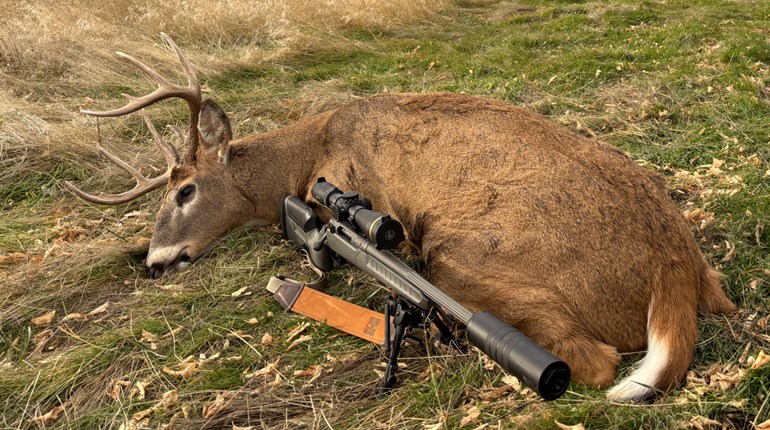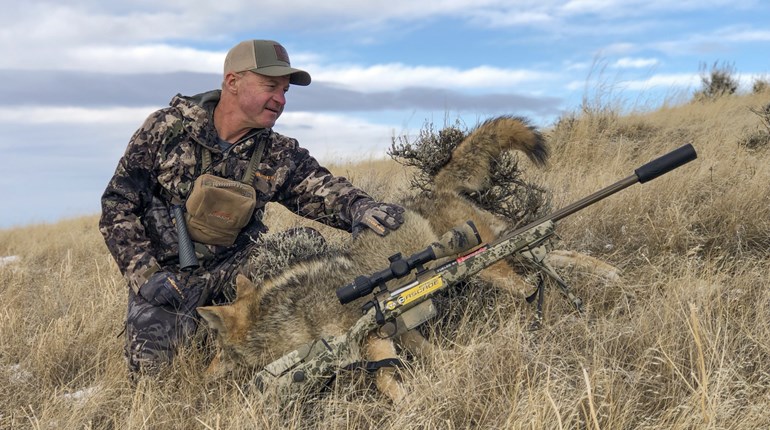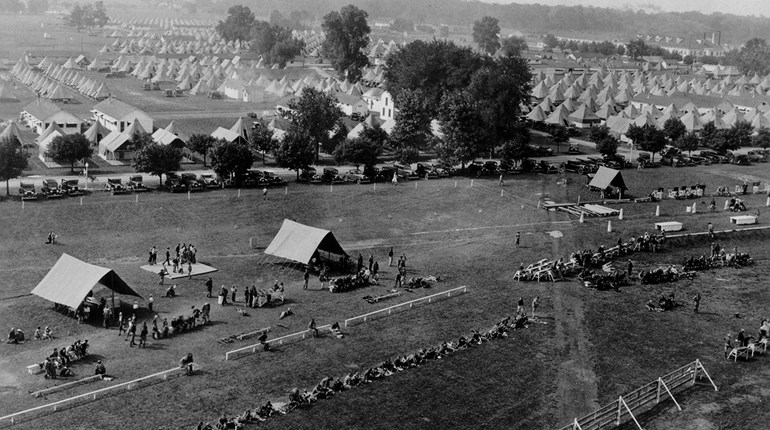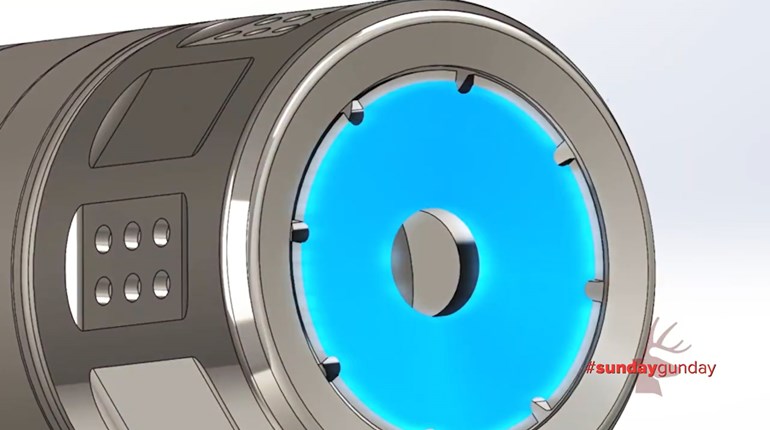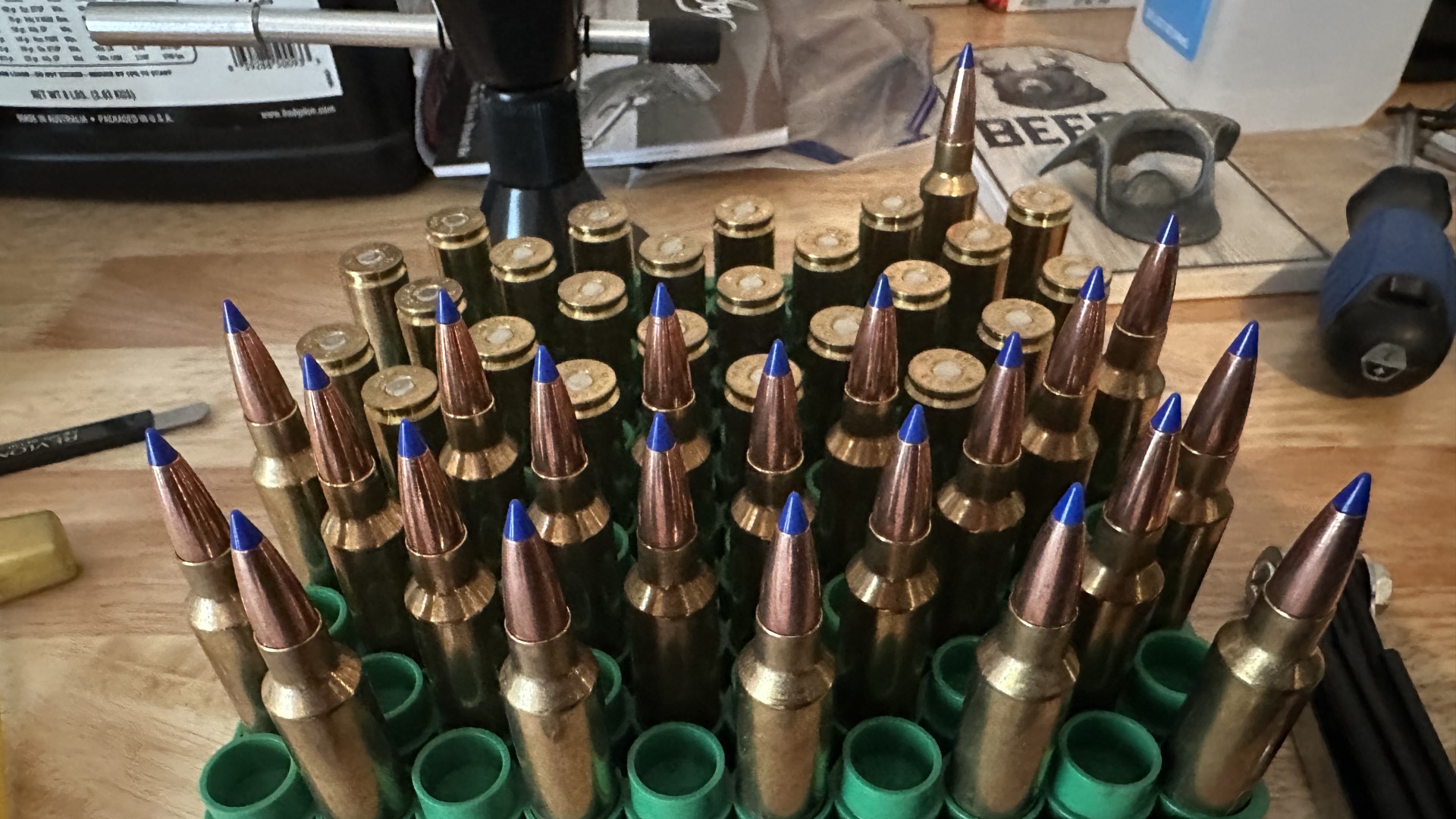
Many of our iconic superheroes had a special belt tricked out with nifty gear and gadgets. No other superhero, though, has the repertoire of equipment that Batman does. And what superhero is more relatable than the most non-super-power superhero ever? If you want to shoot like someone who’s superhuman, having the right tools at your disposal goes a long way.
Build a Base: Book Smarts
There are a few superheroes whose powers come not from their raw physical abilities. Some of them have the mental astuteness to conjure up a solution on the fly and implement a plan on a moment’s notice. This is where it pays to be able to do the same when shooting. All the gizmos in the world won’t do you any good if you don’t understand what’s happening in the real world.
That’s where books about shooting and ballistics come into play, like those written by guys and gals who really know what they’re talking about. A few of my favorites are those written by Brian Litz, the top ballistician at Berger Bullets. If anyone knows a thing or two about ballistics, it’s that guy, but of course there are others.
Do the Prep Work: Reloading
Batman doesn’t step out into the fray of Gotham City without first preparing; he does his due diligence. Reloading is like that in a similar sense. If you’re going to get serious about long-range shooting, it helps to reload your own ammo, as you often can get a boost over factory ammo. Sure, you can hit the range with factory ammo, and you might do okay. And if “okay” is what you’re going for, that’s great. But if you want to be good, better or the best at what you do, for whatever reason (like betting your buddies and taking their money in a friendly shooting competition), it pays to be prepared. A big part of that is being able to tune your ammo to your gun, while also making it slightly faster so your bullets shoot flatter, hit harder and drift less.
BYOB: Be Your Own Ballistician
Superheroes often work alone, so it makes sense to have the tools on hand to calculate your own shots. That’s why a ballistics calculator of some sort is essential. Garmin makes a ballistic watch, for example. Some optics companies offer scopes incorporating a ballistic reticle, and some shooters download apps to their phones.
As for me, I prefer the app method because, as a hunter, I don’t want to have to rely on something I can’t guarantee I’ll always have access to. You see, not all states allow all optical tools, and frankly, I don’t remember to wear a watch. One of my favorite apps is Ballistic AE, which utilizes the JBM Ballistics software written by James B. Millard; it’s used by hunters, competition shooters and even the military.
Team Up: Bring a Sidekick
If you have a friend who you trust at the range to have your back – unless you lost all your friends from winning shooting bets as mentioned before – it helps to have a spotter, too, so you can adjust as needed. Not saying ballistics calculators don’t work, but a second set of eyes on target never hurts, and with in-depth ballistic calculators, if you fat-finger something and don’t catch your mistake, you just (metaphorically) "shot yourself in the foot" with your calculation. And let’s be real: Even Batman had Alfred, Robin and Batgirl to rely on and help assess and analyze situations.
BYOB 2.0: Build Your Own Batcave
When the hard work in the field is done, it helps to regroup and to put together an AAR (after-action report). Shooting long ranges doesn’t magically happen overnight. It takes time to develop skills and be proficient with the tools at your disposal. With your sidekick (if you have one), go over what went well and what needs improvement in a space where you can focus on the task at hand, and have some decent area to lay down targets and make comments and notes on the target itself.
Date all the targets, and include the atmospheric conditions if possible; a different day may produce different results, and those changes are what you really need to be aware of and compensate for to get good at long-range shooting. It’s for this same reason soldiers drill often and why some soldiers deploy early; they need to practice in the environment in which they’ll be shooting to truly see what their bullets are doing at different distances. Practice makes perfect, and if you’re not assessing your practice, you won’t improve because you won’t correct mistakes. Batman always learned something from his confrontations with the Joker, and he applied those items to his next fight.
A basic understanding of ballistics can make it seem like you’re pulling off feats beyond human comprehension, but with the right tools and the knowledge of how to apply those tools, everyone can become a super hero or heroine when it comes to shooting long range.













